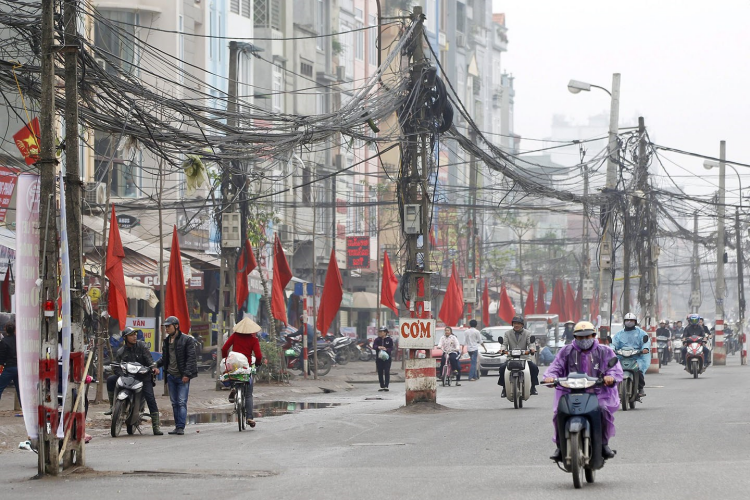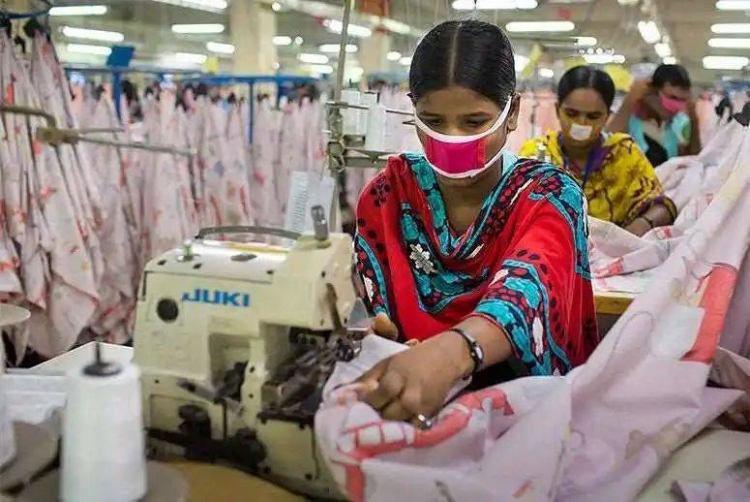Recent heatwaves sweeping across Southeast Asia have led to a significant crisis, impacting numerous foreign-owned factories and potentially causing further damage to export capabilities. The sustained high temperatures have presented challenges to the power supply in various countries, resulting in rotational power outages and restrictions in Vietnam, Bangladesh, and India. Additionally, extreme heat has triggered drought conditions in some regions, leading to reduced agricultural output and affecting the export of agricultural products. The power outages and restrictions, particularly in Vietnam, could pose a new challenge to the already declining exports of these countries.

Vietnam: High Temperatures Disrupt Industrial Parks, Affecting Foreign-Owned Factories
According to reports, the surge in temperatures has led to a surge in residential electricity demand and a decrease in hydroelectric output, resulting in widespread power outages in industrial parks across southern Vietnam. The Southern Power Corporation of Vietnam (EVNNPC) has announced that several regions, including Bac Giang and Binh Duong provinces, are experiencing rotational power outages, which will also affect some industrial parks. These regions are home to foreign-owned factories such as Foxconn, Samsung, and Canon. For the manufacturing sector, power outages essentially mean a halt in production.
It has been reported that Canon's factory in Binh Duong province has experienced power outages starting from 8 a.m. on Monday and is not expected to receive electricity supply until 5 a.m. on Tuesday. Other multinational manufacturing giants have not yet responded to media inquiries. The website of the Southern Power Corporation provides information on rotational power outages in different regions for this week, with many areas facing power outages ranging from a few hours to a full day.
The Southern Power Corporation stated that the increasing power shortage is inevitable due to the electricity pressure caused by the persistent high temperatures since early June. Additionally, the provincial government of Bac Giang has requested factories to delay part of their production until after 10 p.m., and streetlights will be dimmed or reduced by 50% to conserve electricity.
Industrial enterprises are expressing their dissatisfaction with the unpredictability of power outages in Vietnam. The European Chamber of Commerce in Vietnam has written to the Vietnamese Ministry of Industry and Trade, urging a prompt resolution to the "frequent and unannounced power outages." In response, the government has instructed relevant agencies to increase coal and natural gas production while exploring additional methods to enhance power supply.
Vietnam's export contraction this year has mainly stemmed from a significant decline in manufacturing product exports. Smartphones, computers, machinery, textiles, and footwear have experienced substantial year-on-year declines. The rotational power outages in Vietnam's industrial parks have already affected the normal production of numerous foreign-owned factories, potentially dealing a new blow to Vietnam's exports.

Bangladesh: Increased Power Demand due to High Temperatures, Extended Widespread Power Outages
Officials from Bangladesh's Ministry of Energy announced that widespread power outages may continue for two more weeks due to increased electricity demand caused by rising temperatures and fuel shortages in power plants. Since April, Bangladesh has been facing severe power shortages. The frequent heatwaves have led to a surge in electricity demand, while approximately 75% of Bangladesh's electricity is dependent on imported natural gas. However, the high prices of liquefied natural gas and delays in LNG shipments due to the impact of tropical cyclone "Mocha" in mid-May have further strained the national power grid.
The power shortages pose a threat to the development of Bangladesh's garment industry, which is one of the country's most critical economic pillars. The textile and apparel products account for approximately 84% of the country's total exports. Power outages have forced many garment factories to rely on costly diesel generators, significantly increasing production costs. Additionally, prolonged power disruptions may lead to order cancellations and a decline in export competitiveness, further impacting the country's economy.
India: Power Outages and Agricultural Impact
India, another country grappling with extreme heat, has been facing localized power outages in various states. Uttar Pradesh, one of India's most populous states, has been severely affected, with reports of extended power cuts and rotational power outages. This situation has disrupted daily life and adversely affected the industrial and agricultural sectors in the region.
The agriculture sector, in particular, has been hit hard, with farmers facing challenges due to limited access to electricity for irrigation purposes. Drought conditions caused by the high temperatures have further exacerbated the situation, impacting crop yields and potentially affecting India's agricultural exports.
The high temperatures and resulting power outages in Southeast Asia have created a significant crisis, disrupting supply chains and potentially causing further damage to exports. The affected countries are taking measures to address the power shortages and minimize the impact on industries, but the situation remains challenging. Companies in the region, particularly those reliant on manufacturing and agriculture, are urged to assess their contingency plans and explore alternative solutions to mitigate the effects of the ongoing crisis.

OWELL INDUSTRIES encourages businesses to stay informed about the evolving situation and collaborate with relevant sectors to find sustainable solutions. As a community, it is crucial to work together to overcome these challenges and ensure the continuity of operations and the well-being of the affected regions.